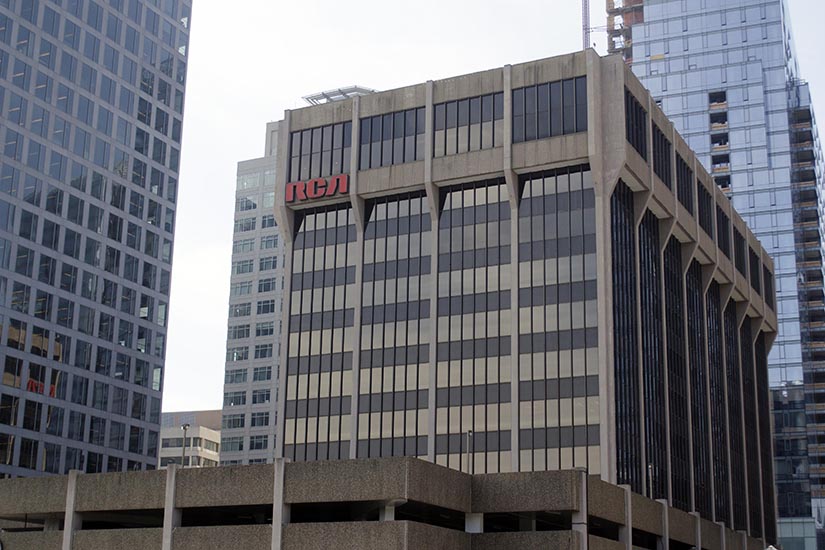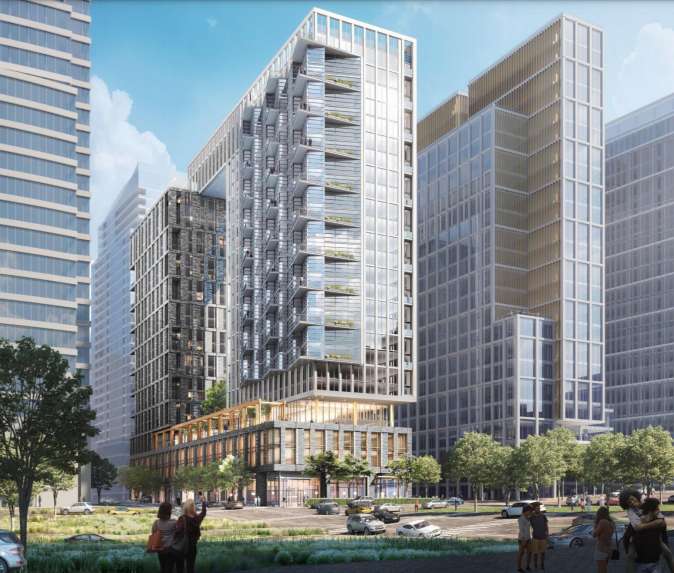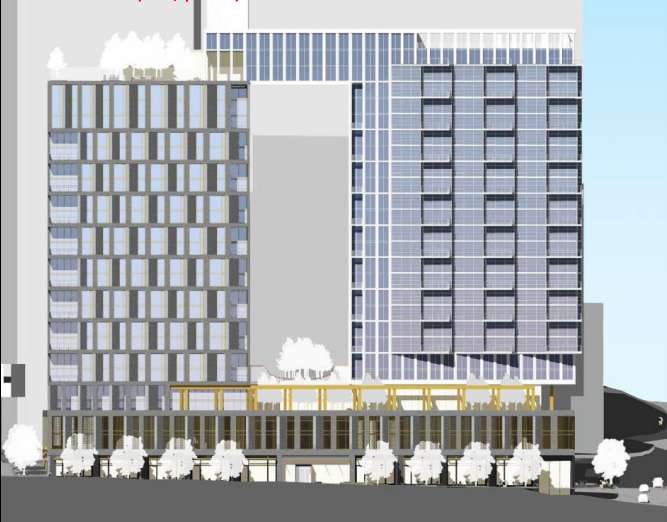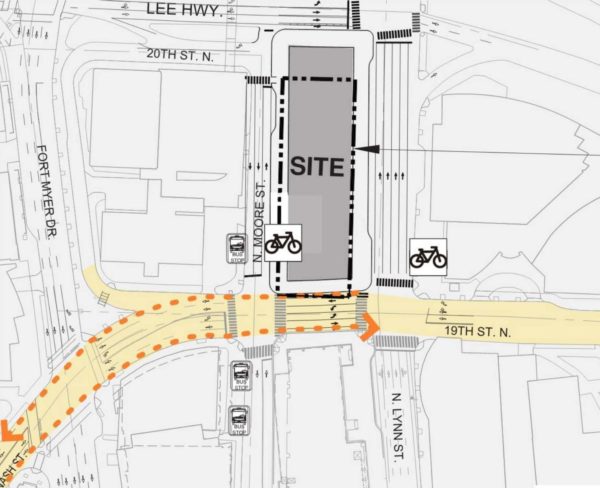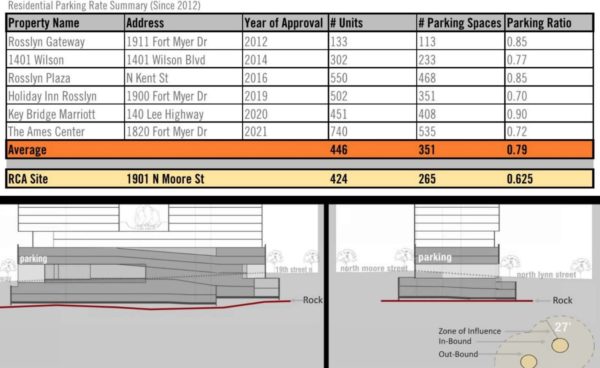A major redevelopment proposal in Rosslyn is facing pushback from those who think it doesn’t do enough for cyclists and pedestrians.
McLean-based Jefferson Apartment Group is proposing a 27-story mixed-use residential complex with 424 units at 1901 N. Moore Street, replacing the 1960s-era RCA building. Two towers will be connected at the top by a penthouse and at the base with ground floor retail.
But as the project moves through the public review process, some have expressed concerns a number of transportation-related issues: the proposed unprotected bike lanes along 19th Street N., the project’s parking ratio, and the pedestrian experience along the block.
These three topics are likely to resurface during a follow-up Site Plan Review Committee meeting on Monday, March 15 — and perhaps later this spring, when the project will go before the Planning Commission and the County Board.
“We’ve been identifying issues, responding to citizen comments, and having very good discussions with surrounding community groups,” said Andrew Painter, an attorney with land use firm Walsh Colucci, during the first SPRC meeting last month.
Staff members are considering some protections for the proposed 19th Street bike lanes in response to public input.
“It may be possible to provide an additional level of protection in one direction” on the block from N. Lynn to N. Moore streets, said Principal Planner Dennis Sellin, adding that staffers “don’t see the capacity to do it in both directions.”
Arlington Transportation Commission Chair Chris Slatt said 19th Street N. has enough traffic to qualify it for protected or buffered bike lanes.
Another hot issue was the parking ratio of .625 spaces per residential unit. Jefferson is proposing 290 total spaces, split among 265 residential spaces, 15 retail and 10 visitor spaces, according to a staff report.
“The goal is to right-size the garage to meet the market demand but not provide extra that incentivizes people to drive,” Painter said.
Although the proposal is within county guidelines, Sellin said “we would certainly accept a lower ratio.” The minimum is .2 spaces per unit but the lowest Sellin said he has seen proposed is .38 spaces per unit.
North Rosslyn Civic Association representative Terri Prell said people, particularly the elderly, still need cars for tasks such as grocery shopping.
“You have to understand this is a residential community, not a business community,” she said.
Lowering the ratio would attract people who want to lead a car-free lifestyle, Slatt said, asking for data on space utilization rates.
The parking needs to be built partially above ground due to “particularly dense rock” and Metro tunnels. To conceal the parking above the retail and below the residential units — and add public art — the architect is exploring adding graphics by local artists, said architect Shalom Baranes.
The Metro tunnels add another complication: a longer expected demolition process.
It'll take about 3 months to dismantle the existing RCA building. Developer says that's because they're over the Metro tunnels.
"They do frown upon explosions over their tunnels."
— Stephen Repetski (@srepetsk) February 12, 2021
As for the pedestrian experience, some members were concerned that the block will be too long and there will be no opportunities for cutting through it. Sellin said the block is comparable to others at 400 feet long.
SPRC Chair Sara Steinberger said knowing the length “may not change the community’s feelings on what feels like a longer stretch of block when you have large buildings covering a greater area.”
In 2017, Weissberg Investment Corp., which developed the RCA building in the 1960s, filed plans to redevelop the RCA site — but those plans were put on hold indefinitely in 2018. Jefferson started filing application materials in May 2020.


